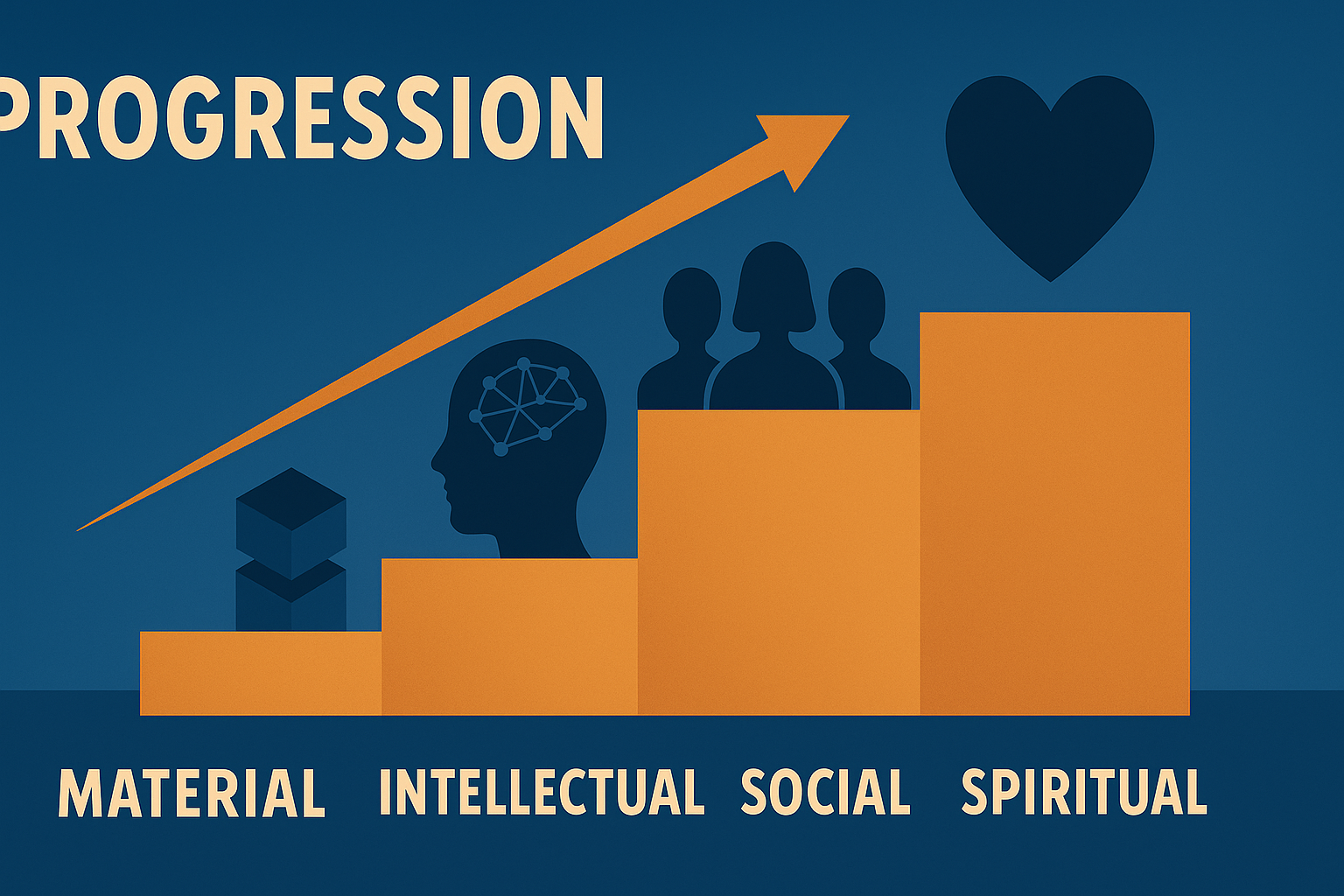Modern capitalism—sometimes
called “new capitalism”—cannot be understood by material wealth
alone. Rapid technological change, globalization, and
platform-based economies have shifted how value is created and
sustained. In this environment, a balanced combination of
material,
intellectual,
social, and
spiritual
capitals is not only a path to success but a requirement for
long-term survival.
The evolution of
capitalism and the rise of a holistic view
 Earlier thinking equated
progress with money, machines, and physical assets. As
knowledge, networks, and values proved essential to innovation
and cohesion, the concept of capital expanded. Thinkers such as
Lawrence M. Miller
described how a new capitalism must integrate culture, ethics,
leadership, and learning with finance and production.
Earlier thinking equated
progress with money, machines, and physical assets. As
knowledge, networks, and values proved essential to innovation
and cohesion, the concept of capital expanded. Thinkers such as
Lawrence M. Miller
described how a new capitalism must integrate culture, ethics,
leadership, and learning with finance and production.
Material
capital: still the foundation, but not sufficient
Material capital—funds,
equipment, infrastructure, energy, and natural resources—remains
essential. Yet over-reliance on financial metrics has often
missed broader needs, producing fragility, inequality, and
environmental stress. Recent shocks remind us that resilient
material systems must be built in concert with the other
capitals.
Intellectual
capital: knowledge assets and adaptability
Education, research, data,
software, and protected know-how drive competitiveness.
Intellectual capital helps societies and organizations adapt to
technological shifts. In today’s economy,
data and AI models
are prominent forms of intellectual assets; they are most
productive when guided by clear purpose and embedded in a
learning culture.
Social capital:
trust, norms, and cooperation
Societies function through networks of trust and reciprocity.
Social capital
reduces friction, spreads good ideas, and supports collective
action. Bonding ties build reliability; bridging ties connect to
new opportunities and resilience. Without trust, even
well-funded initiatives stall.
Spiritual
capital: values, meaning, and direction
Spiritual capital
highlights resources drawn from faith, purpose, and moral
standards. For believers, it can be connectedness with God. For
others, it is commitment to noble purposes and ethics. When
values guide behavior and habits, they become usable capital
that supports integrity, courage, and long-term orientation.
Authors such as Danah
Zohar have helped articulate this dimension.
Why 4Capital is necessary
in new capitalism
Prosperity and social harmony are strongest when all four
capitals are cultivated together. Material investment builds
capacity; intellectual capital turns ideas into improvements;
social capital enables cooperation; spiritual capital keeps
power and ingenuity directed at worthy goals. Overemphasis on
any single capital—money without trust, knowledge without
ethics, or community without resources—creates new problems.
Everyday examples
(brief)
• A
manufacturer invests in energy-efficient equipment (material)
and worker training (intellectual) while building supplier
partnerships (social) under a clear purpose to reduce waste
(spiritual).
• A city
upgrades broadband (material), publishes open data
(intellectual), and co-designs programs with community groups
(social) guided by a shared vision of inclusion (spiritual).
Applies across
systems
These
principles hold in capitalist or socialist settings. The four
capitals describe how value is created and sustained in any
society—through resources, ideas, relationships, and values.
Conclusion
The 4Capital approach provides a comprehensive map for
navigating new capitalism and beyond. By acknowledging the
interdependence of material, intellectual, social, and spiritual
capitals, societies can strengthen innovation, resilience,
legitimacy, and well-being.